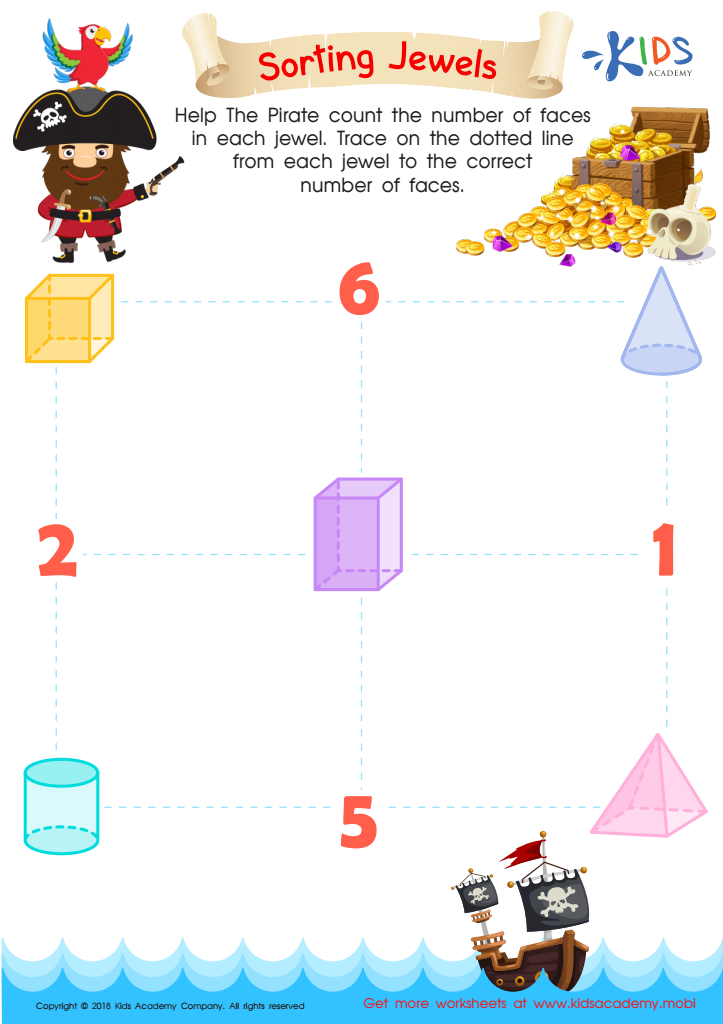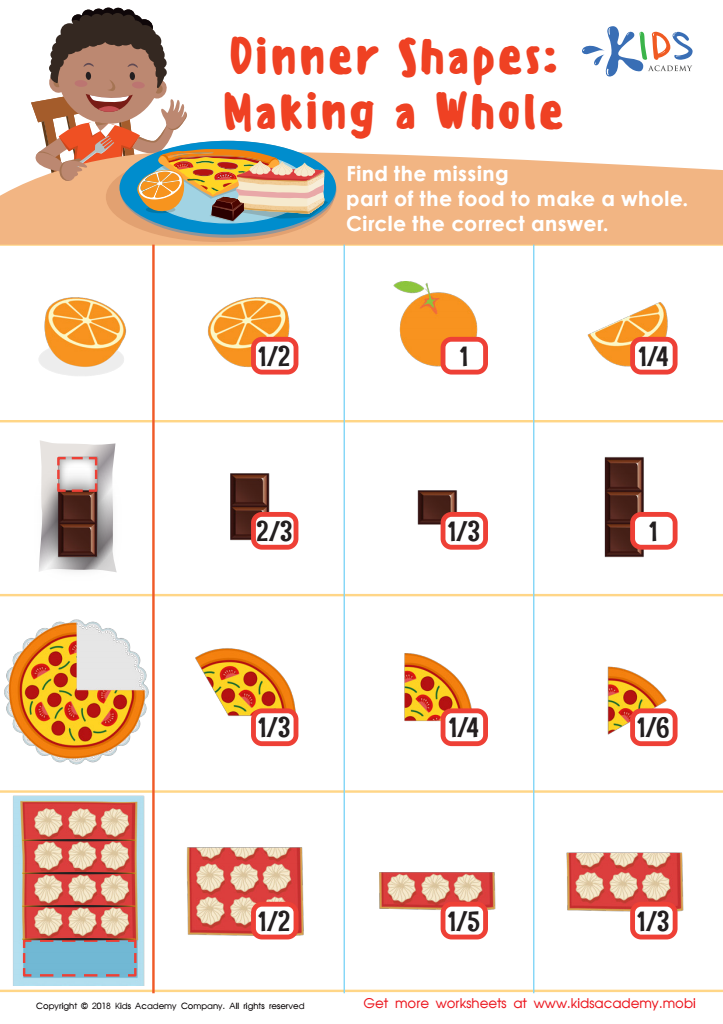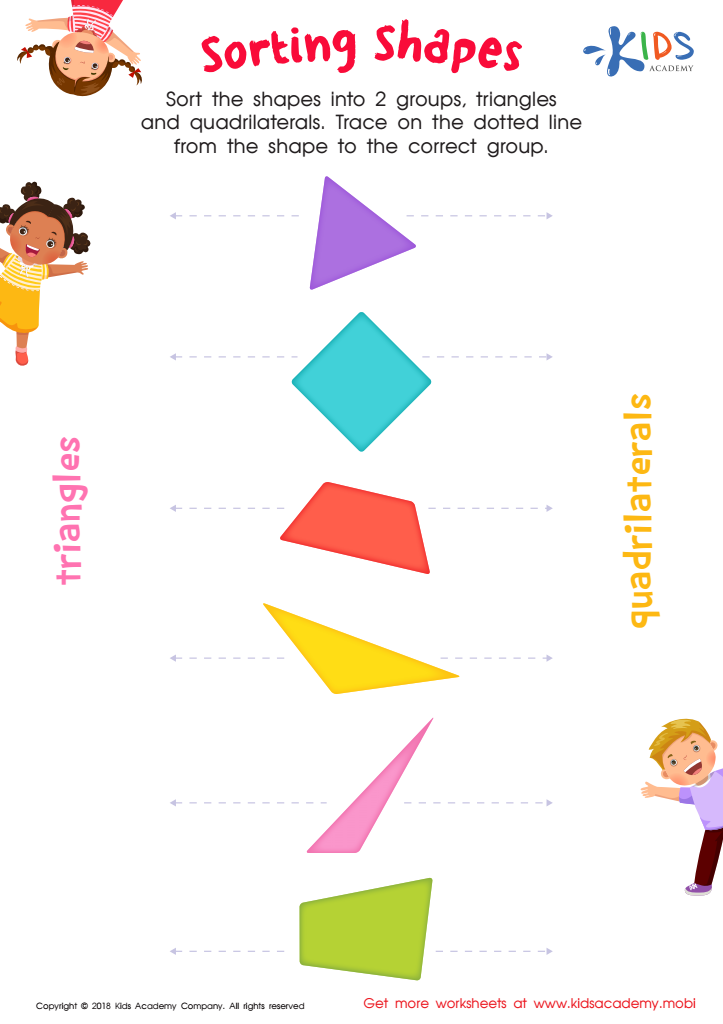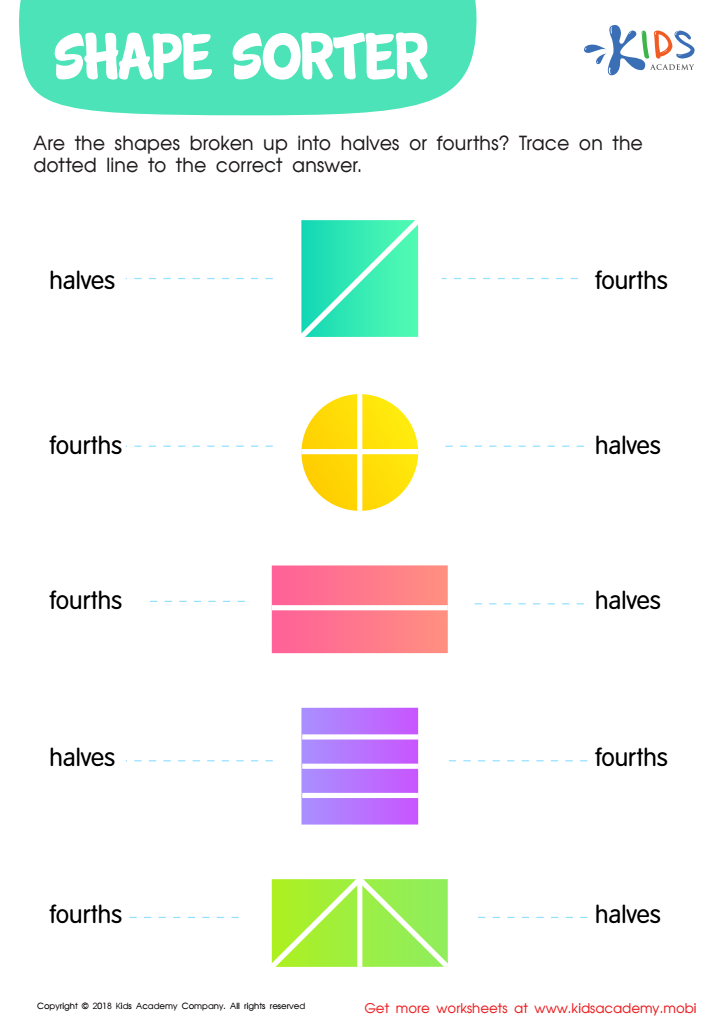Sorting skills Geometry Worksheets for Ages 7-9
4 filtered results
-
From - To
Enhance your child's geometric understanding with our "Sorting Skills Geometry Worksheets" designed specifically for ages 7-9. These engaging worksheets from Kids Academy help kids develop critical thinking and spatial awareness as they sort shapes and objects based on various attributes. Each activity is crafted to support learning standards and offers fun, interactive exercises that make mastering geometry enjoyable. Whether sorting by size, color, or type, these worksheets are perfect for building a strong foundation in mathematics. Ideal for home or classroom use, they promote cognitive skills and foster a love for math. Download and print today for priceless educational development.


Sorting Jewels Worksheet


Dinner Shapes: Making a Whole Worksheet


Sorting Shapes Worksheet


Shape Sorter Worksheet
Parents and teachers should care about sorting skills and geometry for children aged 7-9 because these foundational abilities foster critical cognitive development and enhance problem-solving capabilities. At this age, children are sharp observers of their environment and naturally curious about how things work. Sorting exercises tap into this curiosity, enabling children to classify objects based on attributes such as shape, size, color, or type. This process improves their analytical skills and ability to recognize patterns, which are essential for math and science learning.
In geometry, understanding shapes, sizes, and spatial relationships helps children make sense of the world around them. Not only does this build fundamental math skills, but it also enhances their spatial reasoning abilities, crucial for everyday tasks and future learning in STEM fields. For example, distinguishing between a triangle and a square is more than just recognizing differences; it lays the groundwork for grasping more complex geometric concepts and mathematical theorems later on.
Moreover, these skills support the development of logical thinking and organization, enhancing academic performance across all subjects. Beyond academics, sorting and geometry help children in everyday life, from organizing their belongings to navigating spaces effectively. Consequently, a strong foundation in these areas leads to a well-rounded and robust intellectual development.
 Assign to My Students
Assign to My Students


























